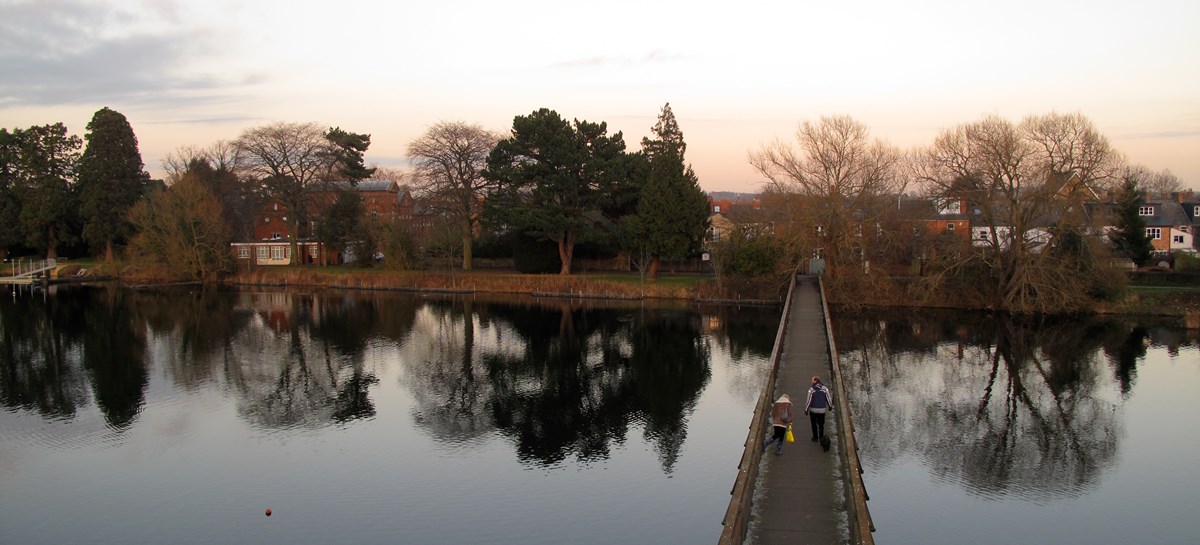
A Community of Commitment
I clearly remember the first moment I seriously considered applying for the Rhodes. It was the autumn of 2008, the start of my senior year at Bowdoin College, and the college President waved me over to his table in the dining room. “You know,” he said, “whatever it is that you are trying to do with Omprakash, you’ll do it better if you are a Rhodes Scholar.”
This caught my attention. Omprakash is a web-based educational non-profit that I founded in 2004, at the age of eighteen. The organization works to connect grassroots social impact organizations around the world with volunteers and donors, and it had been my main ‘side project’ throughout my undergraduate years.
Prior to this brief exchange in the dining room, a few other faculty members had already encouraged me to apply for the Rhodes, but I had met their suggestions with a combination of indifference and disdain. I did not know much about the Rhodes at the time, but I had an impression of snobbishness and elitism, and this, combined with what little I knew about Cecil Rhodes, convinced me that I wanted nothing to do with it.
Naïve though it may sound, I had not given much thought to the ways that the scholarship might enrich my work with Omprakash. Advisors had suggested that the scholarship would ‘open doors’ for me, but I was deeply uncomfortable with the notion of leveraging the spoils of colonial exploitation for my own self-advancement. Yet this discomfort dissipated when I realized that the scholarship did not need to be about ‘me,’ and that I could approach it as an opportunity to amplify the work towards which I was committed. I still felt conflicted, but I knew I had to apply.
After finishing my undergraduate degree in Religion, Education, and Anthropology, I spent the next year focusing on Omprakash while living out of my car and teaching intermittently for the National Outdoor Leadership School. I worked on an early draft of my Rhodes application from a tent pitched in the mountains, and a week before my Rhodes interview I was in the desert in the middle of the night under a full moon. I remember looking at the moon that night and feeling like I was on the edge of something vast and unknown, something almost unbearably exciting – yet even then, I still felt a lingering skepticism about the scholarship and its implications.
Upon arriving in Oxford ten months later, I was pleasantly surprised to discover that many of my peers in the Rhodes community had once harbored similar doubts, and that many still did. Paradoxically, I found this shared skepticism to be reassuring, and in retrospect I recognize that it foreshadowed one of the aspects of the Rhodes community for which I am most grateful: my peers were enormously talented and ambitious, but the common thread that led us all to Rhodes House was not the pursuit of glamour or credentials or recognition; it was something more elemental than that, something more tender and emotional than any sort of strategic attempt at self-advancement could ever be. I found myself surrounded by peers whose backgrounds and interests were wildly diverse but whose lives were aligned, however briefly, by a shared sense of focus and commitment.
Fast-forward five years to today. I am still working on the final corrections to my DPhil thesis about demand for girls’ schooling in rural Pakistan, and I am still working on Omprakash, spending most of my energy collaborating with universities to create affordable, ethical opportunities for international service-learning. When I reflect on what the scholarship has given me, I immediately recognize the truth of the advice that spurred me to apply for it: the Rhodes has dramatically enriched my capacity to grow Omprakash and expand its impact. We now offer accredited online education for students preparing to volunteer abroad, and many of our key partnerships with universities have grown directly from relationships I forged in the Rhodes community. My training in Oxford’s Department of Education has enabled me to design and evaluate more effective educational programming and to have a voice amongst researchers of online learning and the internationalization of higher education.
Yet when I think of the impact of the Rhodes upon my life, what resonates most deeply is not the story of Omprakash; it is the story of friendship and inspiration and that community of commitment. When I think of Oxford I think of hands held around the dinner table, morning runs through pastures or along the misted canal, the reading and writing and thinking together. The collision of so many lives, so much energy, music around a bonfire, and that fire burning and burning still.
Willy Oppenheim (Maine & Pembroke 2010) is Founder and Executive Director of Omprakash - an international education non-profit that connects grassroots organisations around the world with individuals seeking to volunteer. As a Rhodes Scholar at Oxford he focused on the demand for girls' schooling in rural Pakistan.